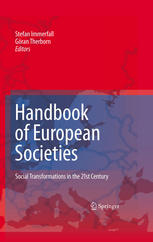

Most ebook files are in PDF format, so you can easily read them using various software such as Foxit Reader or directly on the Google Chrome browser.
Some ebook files are released by publishers in other formats such as .awz, .mobi, .epub, .fb2, etc. You may need to install specific software to read these formats on mobile/PC, such as Calibre.
Please read the tutorial at this link: https://ebookbell.com/faq
We offer FREE conversion to the popular formats you request; however, this may take some time. Therefore, right after payment, please email us, and we will try to provide the service as quickly as possible.
For some exceptional file formats or broken links (if any), please refrain from opening any disputes. Instead, email us first, and we will try to assist within a maximum of 6 hours.
EbookBell Team

4.0
76 reviewsEuropean integration is one of the most ambitious and socially far-reaching developments in world politics and in world economics. Against growing opposition and despite increasing social heterogeneity, the European Union continues to expand and to acquire new competences. But to what extent is the self-proclaimed "ever closer union among the peoples of Europe" a social reality? In which ways is the political European project anchored in social developments? How does social change impinge upon political integration?
Societal trends in multi-cultural, multi-ethnic, multi-lingual and socially diverse Europe have never been studied systematically. Handbook of European Societies: Social Transformations in the 21st Century sets to rectify this neglect of societal developments in Europe, providing a groundwork for the sociology of European integration. The book portrays social life and social relations in the enlarged Europe, and gives a perspective on the European Union as an evolving social entity.
Handbook of European Societies is a pioneering source book analyzing the current social patterns on the continent. It covers a representative selection of major topics of social concern and sociological relevance, such as Collective Action, Consumption, Identity, Power Structure, Sexuality, Stratification and Well-being. Each contribution probes key developments in a strictly comparative manner. The Handbook thus offers a detailed look into the intricacies of the national societies of Europe and into the prospect of an emerging European society.
The Editors have enlisted leading researchers to synthesize existing knowledge and to make use of many different data sources in a straight-forward style. The contributions stay away from jargon, simple labeling and sweeping assertions. Instead, they provide solid and accessible information on a wide variety of social trends and processes within and across European societies.